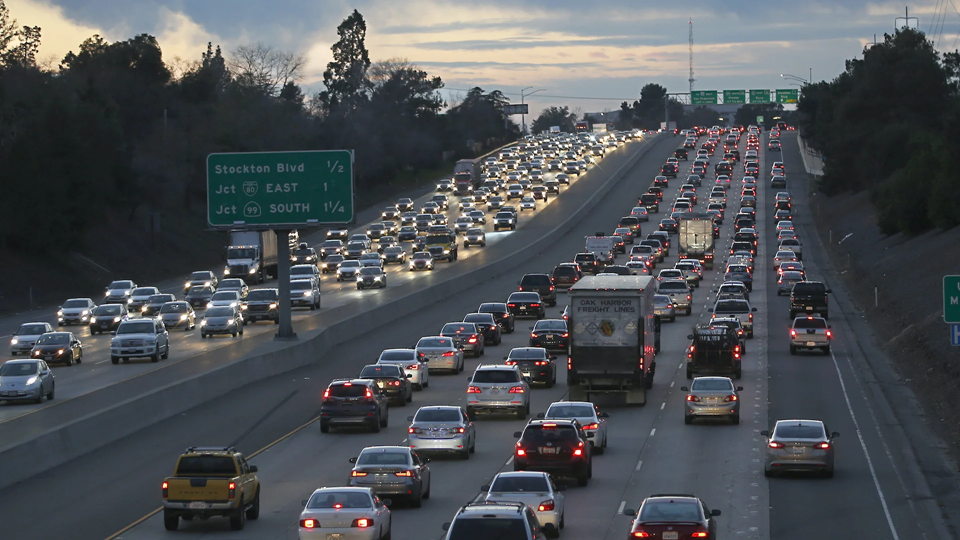What to know about the NHTSA’s new vehicle safety ratings
What to know about the NHTSA’s new vehicle safety ratings
The agency will add four new technologies including pedestrian automatic emergency braking, lane-keeping assist, blind spot warning, and intervention if a driver tries to move toward a vehicle in a blind spot.
The U.S. government’s automobile safety ratings will get a major update starting with the 2026 model year when regulators add new driver-assistance technologies and tests for protecting pedestrians.
The National Highway Traffic Safety Administration said Monday that it has finalized the changes, which were required by Congress under the 2021 bipartisan infrastructure law.
In addition to the five-star ratings for crash tests, the agency will add four new technologies including pedestrian automatic emergency braking, lane-keeping assist, blind spot warning, and intervention if a driver tries to move toward a vehicle in a blind spot.
The new rule also strengthens test procedures and performance standards for technology that’s already included in the ratings such as automatic emergency braking.
Transportation Secretary Pete Buttigieg, whose department includes NHTSA, said the previous ratings, which went into effect in 1978, have helped the industry rise to higher safety standards.
The new requirements make sure “that the evaluation of these cars includes not just the safety of people inside vehicles during a crash, but how the design of a vehicle could prevent a crash or make it less fatal for someone outside the vehicle,” Buttigieg said in an interview with The Associated Press.
The agency said that the five-star crash test ratings, which most vehicles now get, would not change under the new system. But consumers would also see green check marks on NHTSA’s website if vehicles they’re shopping for have the safety features, and they can be assured that the features meet standards set by the government, Buttigieg said.
Early on, the features will get a pass or fail grade, but later will get scores so buyers can compare vehicles, he said.
The standards, which will start showing up this coming August, should motivate automakers to speed up deployment of the features, he said. Automakers already use crash test ratings to compete for customers, and Buttigieg expects that to happen with the new features as well.
The safety devices can either be standard equipment or optional, the agency said.
“We hope that this will move the market in that direction, that consumers will have another reason to be conscious that these features exist and then ask whether the car are thinking about buying has those features,” he said.
The new standards also will strengthen test procedures for safety features that are already included such as automatic emergency braking, the agency said. Automatic emergency braking will have to meet tough requirements and be standard equipment on all passenger vehicles by 2029.
The agency also will set design standards to mitigate injuries to pedestrians, following most of the regulations already in effect in Europe. The standards will set a minimum threshold for points of impact and injuries to a pedestrian struck by a vehicle at 25 miles per hour (40 kilometers per hour).
The Alliance for Automotive Innovation, a large industry trade group, said the updated standards are needed. But for the standards to accelerate industry investment, they need to be “updated on a more predictable and frequent cadence,” the association said.
Buttigieg said this is the first of multiple regulations that his department wants to put into effect before the end of President Joe Biden’s term of office. He wouldn’t say what other regulations could go into effect.
“We’ve been full steam ahead on a number of rulemakings,” he said. “We’ve kept that pace up regardless of what we anticipated in the election. So you can expect us to continue to sprint through the tape, especially on rules that we know are going to make a big difference, that we think will be well-received by the public and that we’ve put a lot of work into already.”
Cathy Chase, president of Advocates for Highway and Auto Safety, said the U.S. is still playing catch up to other nations on vehicle standards. She urged the Transportation Department to approve automatic emergency braking for heavy trucks, technology to prevent impaired driving, front passenger and rear seat belt reminders and other pending safety technologies.
The standards, last updated in in 2008 for 2011 models, have brought significant reductions in crashes, deaths and injuries, the agency said. The number of people inside vehicles who were killed in traffic crashes fell from 32,043 in 2001 to 26,325 in 2021. But pedestrian deaths rose 51% to 7,388 during the same period, so improvements are needed, the agency said.
Last year nearly 41,000 people died in traffic crashes nationwide, a 3.6% decline over 2022, according to NHTSA estimates. Fatalities have declined for nine straight quarters.
But deaths spiked in 2021 with a 10.5% increase over 2020 as people started driving more as the COVID-19 pandemic started to ease. That was the highest number since 2005 and the largest percentage increase since 1975.
This story has been corrected to show that safety features can either be standard equipment or options for companies to get credit for having them.
—Tom Krisher, AP Auto Writer
(4)



